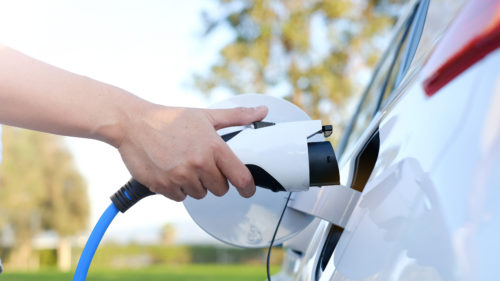
Groups working for cleaner air in Michigan say the pressure is on to encourage wider adoption of electric vehicles (EVs), with the state set to receive $110 million dollars for EV charging from the bipartisan infrastructure law.
Air pollution from tailpipe emissions is a major problem in Michigan, with negative health impacts disproportionately affecting city dwellers and Black and brown communities.
Jane McCurry, executive director of Clean Fuels Michigan, noted more electric vehicles would not only improve environmental justice in the state, but would benefit the economy.
“Over 20% of Michiganders are employed in the mobility industry,” McCurry pointed out. “And so, as this industry continues to change, we are really looking forward to having new and innovative companies locating in Michigan and employing Michiganders. ”
She added EVs also cost less to maintain and operate than those running on gas or diesel. The Environmental Defense Fund (EDF) estimates reducing pollution from all new freight trucks and buses by 2040, and in urban areas by 2035, would prevent roughly 57,000 premature deaths and eliminate more than 4.7 billion metric tons of climate pollution.
Larissa Koehler, senior attorney for the EDF, said having more public chargers would benefit drivers of certain medium and heavy-duty vehicles who travel long distances, as well as potential EV drivers who may not have off-street parking or access to a charger now.
“Range anxiety is, I think, one of the still predominant barriers to increasing adoption of electric vehicles,” Koehler explained. “Building out this national network of charging stations, that’s the focus of this $5 billion pot of formula funding, is going to be really critical to alleviating that concern.”
McCurry agreed the federal funds represent a big opportunity for Michigan.
“We hope to see that money be used to build out the alternative fuel corridors in Michigan and help reach communities that don’t have access to EV charging right now,” McCurry urged. “For example, communities that are more rural, communities that are particularly burdened by harmful air pollution.”






